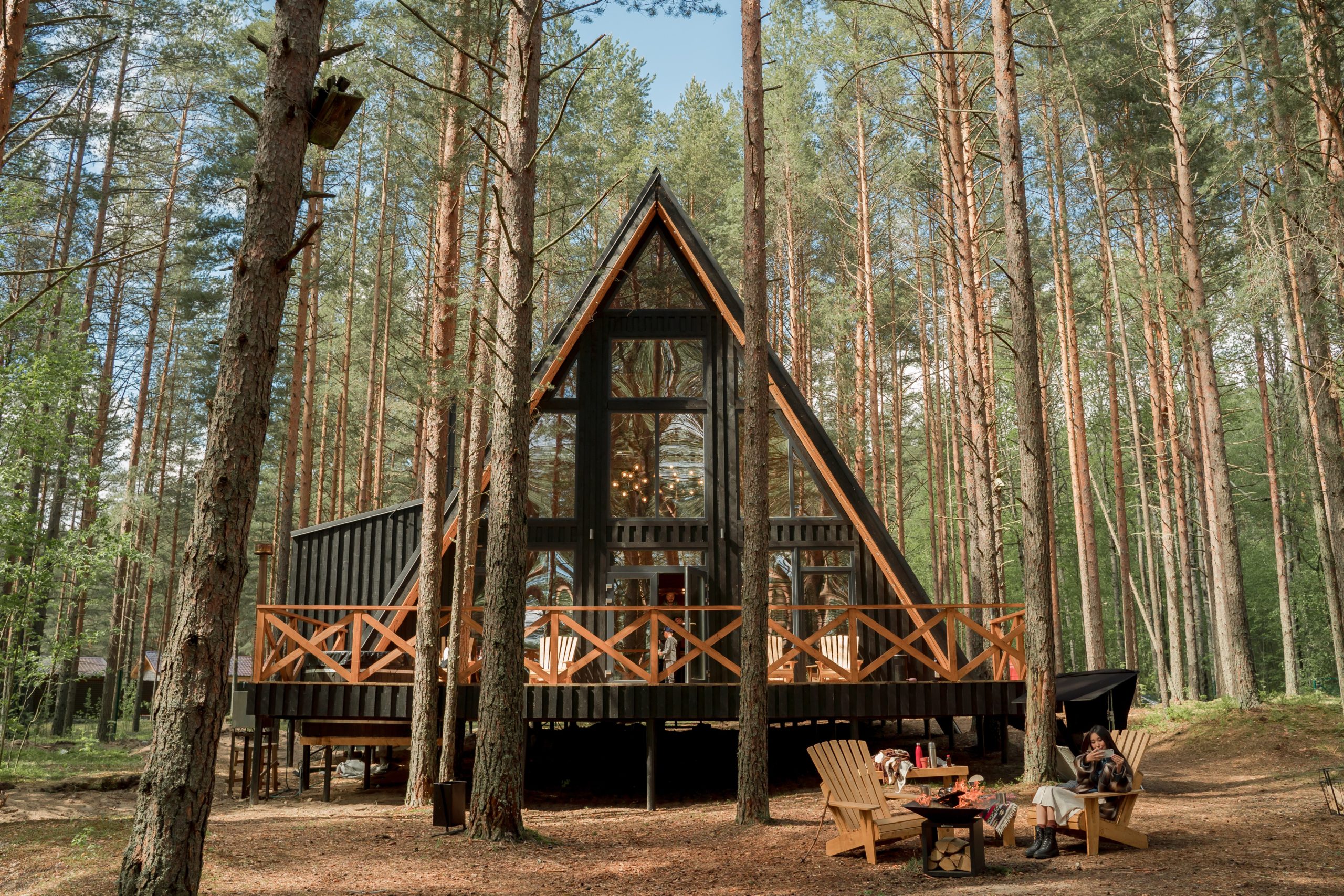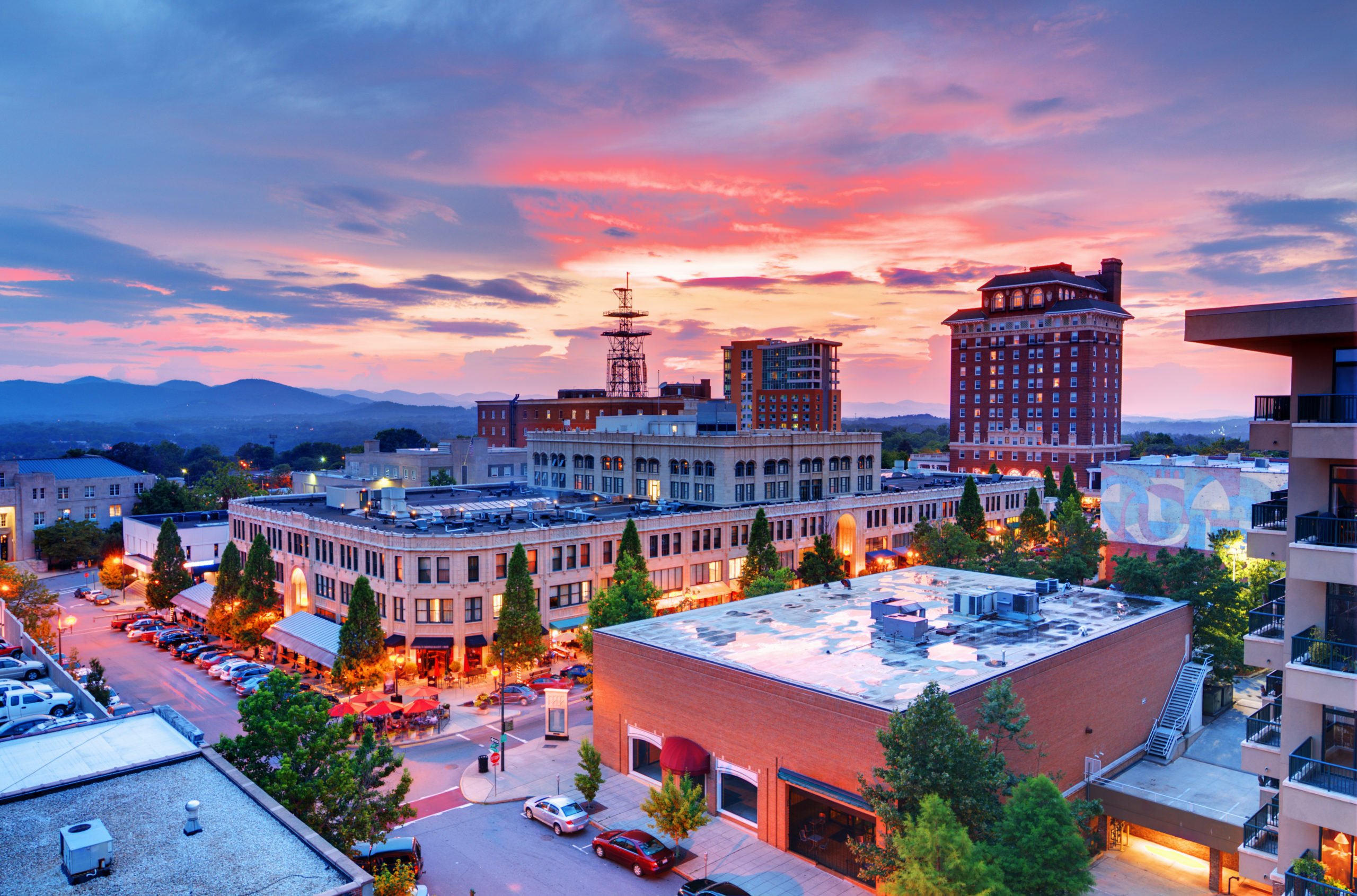Living in Asheville
Learn why I love living in Asheville, what life is like here, things to do, and what the best and worst parts are about life in Asheville, NC. From my view, of course.
I moved to Asheville, North Carolina in June 2020 and literally have never regretted that decision, as impromptu as it was. It’s no secret that I love living here and my decision to move here during the COVID-19 pandemic was one of the best decisions of my life.
What started as a whirlwind COVID-spurred trip from Boston to Florida in the Summer of 2020 turned into a completely new chapter of my life. When I left Boston for Florida in early June 2020, I had no idea I’d be living in Asheville 2 months later.
What pushed me over the edge? Well, I was born and raised in Florida, and I just wasn’t cut out for life as a New Englander. I was ready for warmer weather and… sun…
I actually really enjoyed living in Boston. The arts, culture, recreation, and food was all amazing. As a reformed academic, being in the nexus of some of the biggest science institutions in the world was really cool.
I particularly craved those things because I grew up in a small-medium sized university town: Gainesville, Florida.
But, like many, the pandemic changed things. I was shelling out too-much-money a month for a 1-bedroom apartment. But Boston was shut down. I was paying to live in a cage with no access to all of the amazing things Boston usually had to offer. Not to mention the undercurrent of anxiety and panic that was taking over – everywhere.
Running – my favorite hobby – became a drag. Boston instituted a fine for being outside without a mask (even if you were engaged in physical activity). Things started to add up in my mind, and I started to get an itch to leave.
I remember driving from Boston to Asheville. My first stop was French Broad Park in West Asheville. I’ll never forget seeing people roller blading along the greenway, picnicking against the backdrop of the river, and the green. The green grass. The green trees. It was so nice to be out of Boston. Asheville reminded me of home in Florida.
For me, I loved Asheville’s access to the outdoors and nature that reminded me so much of growing up in Gainesville. But I also loved Asheville’s music, food, and arts scene that reminded me so much of Boston.
After first renting and then buying a home, I’ve learned a lot about the area first-hand. I was incredibly fortunate to relocate at the time and find housing in West Asheville.
I understand well that many do not have the opportunity to move here. I understand even better the big problem of many long-time residents being forced to leave due to stagnant wages, no new industry, and rising housing costs. Since moving here, many of my friends have experienced that reality first-hand.
Now that I’ve been living in Asheville for years, I get asked a lot about life in Asheville.
Why move to North Carolina at all? Is Asheville liberal? What are the best neighborhoods in Asheville? What do we do for fun? Is Asheville expensive? Is it diverse? Are locals really leaving in droves?
What are the pros and cons of living in Asheville? What’s the real estate like in Asheville? Is Asheville tolerant to the LGBTQ+ community?
How did you build a new life in Asheville? Can you make friends in Asheville as an adult? Is Asheville really all about beer?
Since I’ve gotten a lot of the same questions over and over again, I figured I’d write a blog post about life in Asheville (from my perspective).
Hopefully, this blog post gives you a better idea of what life in Asheville is like, especially why I love living in Asheville, along with my advice and personal experiences.
You’ll find other blog posts on the web from other perspectives, but so far none are from a 30-something year old male moving to Asheville during the pandemic.
I knew zero people before moving here and started my life from scratch, but several years later, Asheville truly feels like home.
Despite all the privilege that comes with being able to that, it was still hard (but mostly good), and I want to share that.
Frequently Asked Questions About Living in Asheville
I think people assume that because I am a Realtor, that my perspective about what it was like to move here with zero network, zero support, and zero guarantee of success is somehow less.
I left a career that wasn’t serving me mentally, physically, spiritually, moved to Asheville, and gambled that I could start a new life.
No silver spoon, no rich spouse, no lotto winnings, no local family business to pick up.
I quit my remote academic job, and picked up real estate, with zero prior expectations or guarantee that it would work at all.
I had prior real estate experience in Florida, and I needed to remove my academic shackles, so I decided to enter the business here in Asheville.
It was hard. I worked hard. My job is not to convince anyone that Asheville is or isn’t anything. My view is that there is no such thing as bad information. I have no problem being honest with you about what life is like here for me. Just keep in mind that my experience is not everyone else’s.
I chose to live here for a reason (several, actually), and have no problem being upfront about the good, the bad, the ugly, and the surprising.
I write this blog so that I can share with you my opinions and experiences. Not to be evangelical about Asheville.
Asheville isn’t for everyone.
Hopefully, by answering questions here, I can help just as many people rule out Asheville as I do help folks count Asheville in.
Of course, my experience moving to Asheville is shaped by my prior real estate career in Florida, as well as the fact that I bought and sold several personal residences in Florida before moving here.
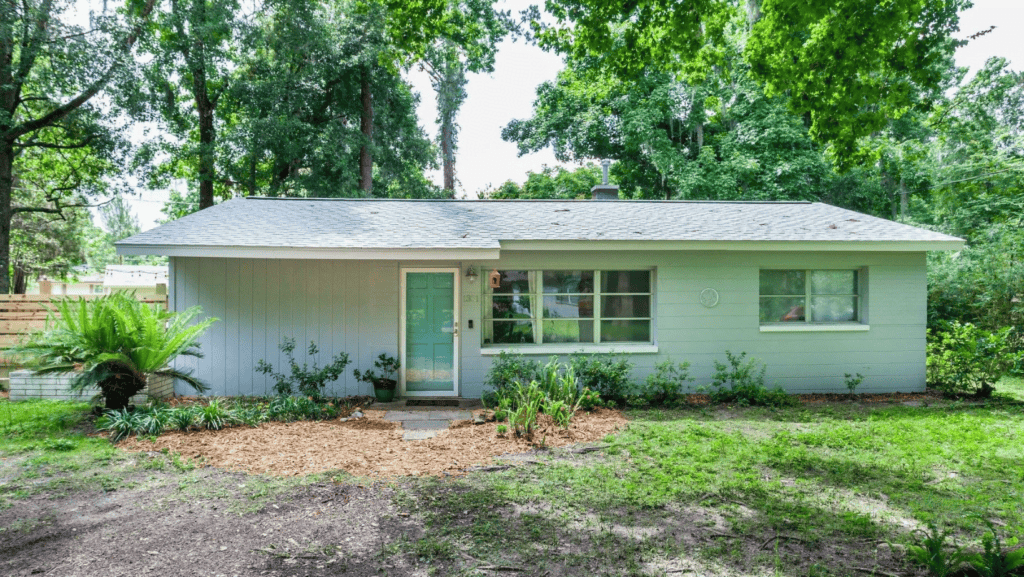
So, I wasn’t a first-time home buyer when I moved to Asheville, but I was definitely naive to the area.
Why Move to Asheville, NC?
I grew up in a college town (Gainesville, Florida / University of Florida) and was always pretty active growing up. I enjoyed running and rock climbing, and love being outdoors.
Gainesville itself was pretty small with about 90,000 people. Similar to Asheville, which has about 94,000 people. This is less than Knoxville (192,000), but more than Greenville (72,000).
Of course, I did spend some time in Boston. The fast city life, arts, music, and great food was all exhilarating, but I needed a better climate to enjoy it in, and I’m not all that cut out for such a large city.
I love Asheville because it’s the perfect combination of the small college town that I loved growing up, and the big city that I tasted while in Boston.
No matter where I’ve lived, I’ve always been surrounded by a vibrant academic community. With UNC Asheville and Warren Wilson right around the corner, Asheville feels more like home.
We have a temperate rainforest climate, so while we do get some cold winter months, we get those hot humid summer days as well.
Seasons bring about a certain dynamic flow to life, and Asheville offers four well-rounded seasons. If you’ve been following me for a while you know that Fall is one of my favorite seasons. The drama of the color change followed by the trees losing their leaves, exposing new, unadulterated views of the landscape is priceless. Don’t get me wrong, I love the return of summer and river swims, but Fall has my heart.
The outdoor scene is out of this world. Tourists spend thousands of dollars on vacations here. And we get to live here. If you enjoy nature trails, waterfalls, rivers, or once-in-a-lifetime views, few places can compete with Western North Carolina.
There are dozens of local breweries, bars, and restaurants with national reputations. Our local restaurant scene caters to virtually every dietary configuration as well.
One of the things that was a requirement for me was that I wanted to live in a diverse community. Boston was amazingly diverse and international and I knew I wanted to keep that vibe in my next city.
Asheville has a thriving LGBTQ+ community and supports dozens upon dozens of artists across a wide spectrum of mediums.
As someone who appreciates the arts, I love being able to visit galleries, museums, and art events. It’s also been great to have such a large number of live music venues.
Who Lives In Asheville?
According to the US Census Bureau, Asheville has a population of approximately 94,000 people.
In terms of age distribution, the median age in Asheville is 39.4 years old. The city has a relatively young population, with just over a quarter of residents under the age of 25.
Asheville is known for its progressive values and agenda. A high proportion of residents hold college degrees and there is a strong commitment to environmental sustainability. The area is also home to a significant number of artists, musicians, and writers, making it a culturally rich and diverse place to live.
Retirees come to Asheville for the mild climate, cultural events, and outdoor activities. There’s something for everyone, whether you want a quiet mountain retreat or an active social scene.
As a member of the LGBTQ+ community, I am proud to call Asheville home. We have a thriving, growing queer scene and a community that values diversity and inclusivity. I have lived in West Asheville, South Asheville, and now East Asheville, and have always felt accepted and included.
The healthcare industry is a major employer in Asheville, with Mission Health System and the VA Medical Center among the top employers in the area.
How are transplants treated in asheville?
The first two things that I tell everyone about Asheville is 1) Asheville is easy and 2) Asheville is friendly.
The main reason this is my response is because I’ve found all of my neighbors to be incredibly friendly.
I guess the third thing would be: Asheville is full of transplants.
In Asheville, you get the tight-knit community feel of a small mountain town where 90%+ of the businesses are small and locally owned, but also have access to amenities typical of larger cities including a robust hospital system, lots of restaurants, music, and lots of great festivals nearby or within a short drive.
Whether I was living in West Asheville, South Asheville, or East Asheville, the Asheville I’ve experienced has been the kind of community where neighbors will bring you a welcome basket if you’re new, invite you to backyard drink socials (socially distanced now), watch each other’s kids, and take day trips together.
I’ve found the sense of community is strengthened because a lot of people here value wellness and active lifestyles and the mountains are a fabulous place to do that with friends and family.
As I mentioned, many residents are also transplants. Most of my friends are not originally from the area.
I think there is a misconception that a lot of friendships in the area are formed around beer/alcohol. There is probably some truth to it, but I don’t think that being a big drinker is a requirement for a great life here with strong relationships. At least, that hasn’t been my experience.
Those who know me know that I’m a huge coffee drinker. I love a good black coffee and there’s not a shortage of places to get a cup in Asheville.
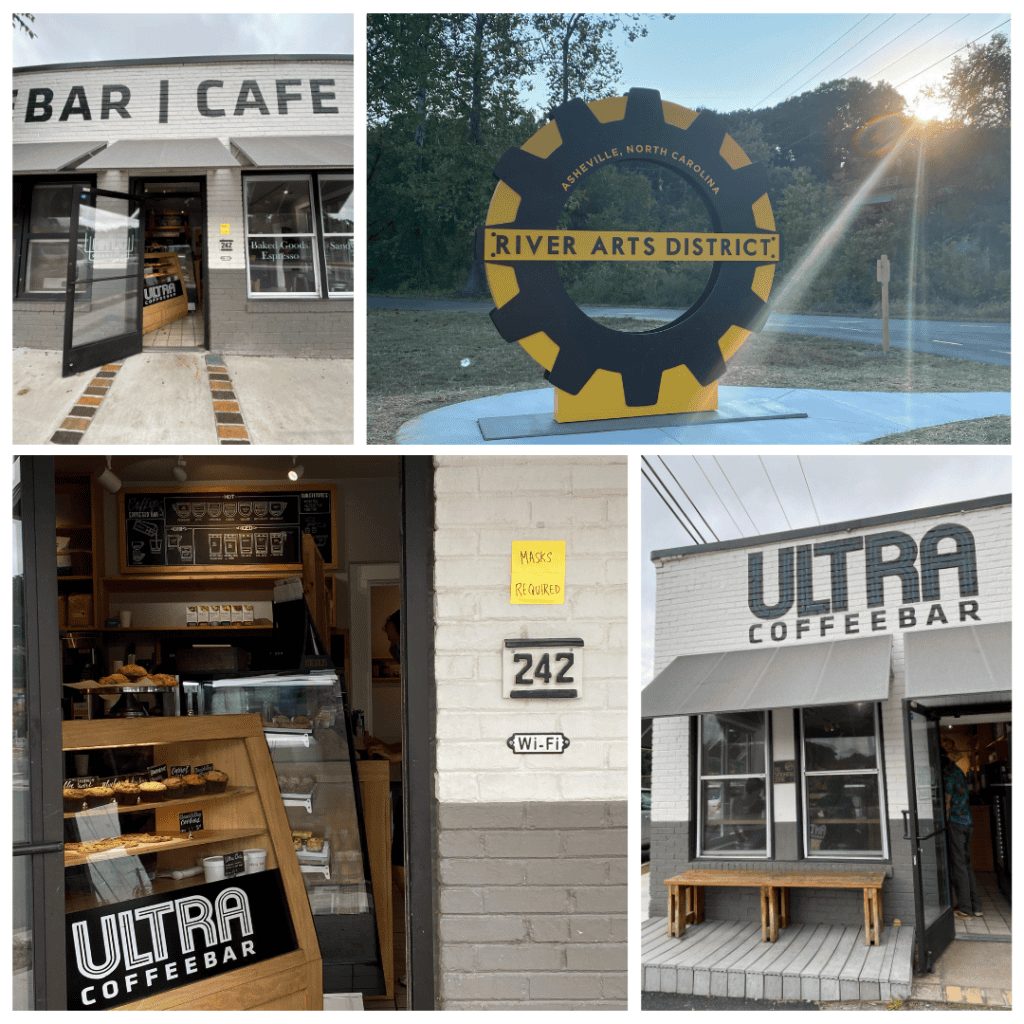
The good relationships, the ones folks want, are those that are formed over time – rarely instantly – and it’s very possible to move here, know noone, and start your life from ground zero. I know because I did it.
Where do people live before moving to Asheville?
It’s no secret that Asheville is full of transplants. Locally, this is a hot topic. There is one view that the increasing number of transplants is eroding the historic charm of our Southern Appalachian town, driving housing costs up, and making living here unaffordable for locals.
I think there is validity here. Anecdotally, the word on the street is that most of the folks moving here are from California, New England (ahem), and Florida.
In reality, the data seem to suggest that most folks that are relocating to Asheville are coming from the Carolinas. The table below estimates the number of folks moving to the Asheville area from various counties/states in the US.
| County Name | State Name | Total (Inbound) |
| Henderson County | North Carolina | 824 |
| Madison County | North Carolina | 608 |
| Mecklenburg County | North Carolina | 488 |
| Cook County | Illinois | 470 |
| Onondaga County | New York | 445 |
| Wake County | North Carolina | 420 |
| Haywood County | North Carolina | 349 |
| Duval County | Florida | 333 |
| Volusia County | Florida | 321 |
| McDowell County | North Carolina | 307 |
*Source: US Census Bureau
I expected to see more Counties from Florida, California, and New England represented in this top 10 list. It’s worth pointing out that this is a table of migration, and doesn’t show all home purchases and where that money is coming from. That table would look very different.
What are my favorite neighborhoods in Asheville?
Each area of Asheville has a slightly different vibe, with different restaurants, amenities, breweries, and quirks.
When I was first moving to Asheville, I looked primarily in West Asheville. I knew I wanted to be close to the heart of the City, but I wanted something cheaper than North Asheville or Downtown Asheville.
Today, I don’t think prices in West Asheville are all that much cheaper than North Asheville. For cheaper prices, I’d probably start looking in East Asheville.
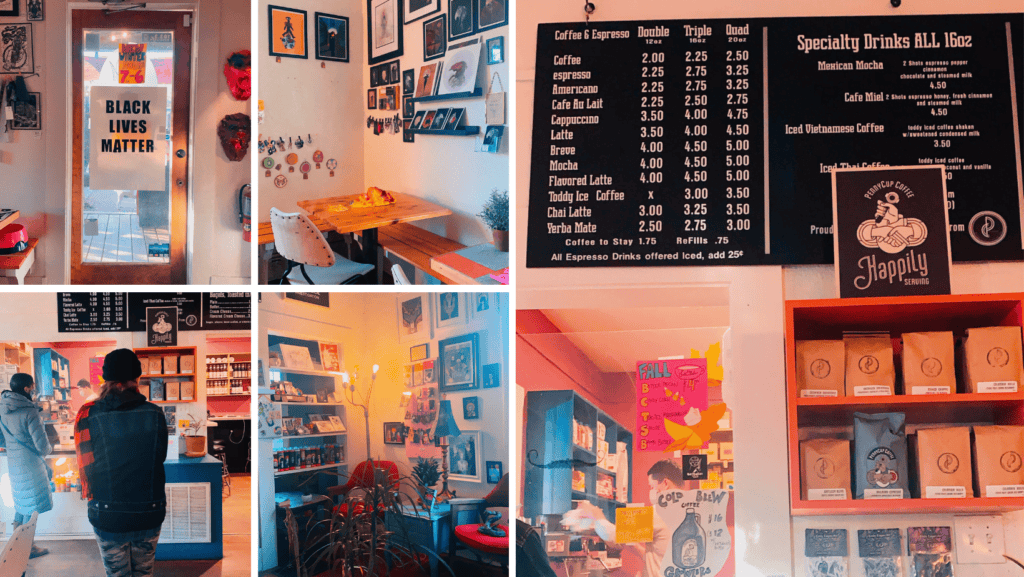
Although it’s pretty commercial, I like walking around Biltmore Village. It’s one of the more walkable areas of Asheville outside of Downtown. Traffic often is heavy along Hendersonville Road but the deeper you get into the village, the less congested it feels. I like the buildings which have a Tudoresque style with rough pebbledash exterior walls along with half-timbering and red brick. Catawba Brewing has an outpost here as well.
South Slope an up-and-coming area for restaurants, craft breweries, as well as condos/townhomes (such as Southside Townhomes, Bauhaus, and District Brewery). South Slope is home to the biggest pizza in Asheville at Pie.Zaa.
East Asheville. many well-established, middle-class subdivision and residential areas including Town Mountain, with wonderful views over Downtown, Chunn’s Cove, Haw Creek and Beverly Hills, with many of the homes built between the 1940s and 1970s, along with areas farther out including Oteen and Swannanoa. East Village Grill, FILO.
Kenilworth older homes in Kenilworth are in the Tudor Revival style, although the area also has Prairie, Bungalow and even Spanish Colonial homes, along with a number of newer homes built in the mid-20th century.
River Arts District. home to more than 160 art and craft studios, most of which are open to the public. There also are art and craft galleries and at least a dozen restaurants, coffee shops and bars. A number of creative businesses such as ad agencies and design studios also have relocated to the area. Residential apartments and condos also are in the district, and a large new apartment/lofts complex has been approved, but groundbreaking has been delayed several times.
How’s the Real Estate Market in Asheville, NC?
The real estate market in Asheville is currently quite competitive.
I wrote a blog post recently about what spring 2023 prices are doing.
Right now, if a nice home is listed in a desirable neighborhood, it’s not uncommon to see multiple offers and offers 10-20% above asking price.
What Suburbs Are Near Asheville?
There’s a lot to be said for the suburbs located just outside of Asheville. If you’re looking for a little bit more space for a little bit less, areas around Leicester, Fletcher, Fairview, and Arden may be what you are looking for.
However, you’ll have to deal with our horrendous interstate traffic if you commute or travel to these areas from Asheville.
It’s worth noting that there are a few names that show up on Google Maps that may look like separate cities from Asheville, but in reality feel like they are basically Asheville.
In my view, these are areas like Arden, Skyland, Woodfin, Swannanoa, Oakley, Oteen, Candler, and Enka. These spots feel and live like extensions of Asheville and have a pseudo Asheville identity. These areas have their own identity somewhat, but not as much as areas like Black Mountain, Fairview, and Candler.
Here are some suburbs/townships outside of Asheville that have their own identities:
Black Mountain
Just 15 miles east of Asheville, Black Mountain is a small town with a thriving arts community and plenty of outdoor recreation opportunities. The cost of living is relatively low, and there are still some affordable housing options. This market has exploded since 2021 and many of the new purchases are for STR/AirBnBs.
Hendersonville
Hendersonville is a charming town about 20 miles south of Asheville. Its known for its historic downtown, apple orchards, and nearby hiking trails. The cost of living can be more affordable than Asheville, and there are a variety of housing options available.
Weaverville
Weaverville is a small town about 10 miles north of Asheville. Weaverville is a tight knit area with a strong sense of community and a growing arts scene. Housing costs are relatively low compared to Asheville, but rising.
Canton
Canton is a small town 20 miles West of Asheville surrounded by mountains. The paper mill just closed, and housing prices are still low relative to other suburbs outside of Asheville.
Marshall
Marshall is a small town 20 miles North of Asheville with a rich history and a growing arts scene. Housing costs are relatively low, and there are plenty of opportunities to enjoy the outdoors, including nearby hiking trails and the French Broad River.
Each of these towns has its own unique character and charm, so be sure to spend time in a few of them to see if you vibe.
How expensive is it to live in Asheville?
According to MLS statistics from March 2023, the median sales price for a home in the Asheville area is just below $500,000.00.
For many, Asheville is just unaffordable, and the suburbs just outside of Asheville are a more realistic option.
Renting is also pretty pricey – and competitive – in Asheville.
Single family homes in West Asheville can rent for $2,000 per month or more. Similarly, in West Asheville, $300,000 will probably buy you a dated home that needs some work.
In general, all housing in Asheville has gotten more expensive in recent years. I think there are still deals, and the rate of price increases is leveling, but it’s still sticker shock for some.
What’s the best time of year to visit Asheville?
You can visit Asheville NC really any time of the year. Our winters are not Boston-level cold, and our summers aren’t Florida-level hot or humid. In general, the best time of year to visit Asheville is the end of March to early June, and September to November.
Some events that bring people to Asheville include:
- Asheville Restaurant Week – January
- Asheville Beer Week – May/June
- Leaf peeping – October
- Brewgrass – October
- Blue Ridge Pride – October
- Christmas at Biltmore – November– January
Pros and Cons of Living in Asheville
At almost every get together I’ve gone to in Asheville, I’ve overhead the following expressed: “I love this town so much and cannot imagine living anywhere else!” AND “The job market sucks, the housing is outrageously expensive, and I worry that tourists and wealthy people who are moving here are destroying everything.”
I hear some variation of these ideas mentioned right after each other.
And it’s true for many of the folks that live here.
This town is amazing, but it can also be gut wrenching to live here because of systemic racism and poverty against the backdrop of commercialized Southern Appalachian tourism. The residents who support the tourism are struggling to afford to live here and often work multiple jobs – but they must play the role and offer the southern hospitality that’s come to be expected.
If you’re like me, you were or are in the process of being lured here by the stunning mountains, the quirky charm of the downtown area, and the culture.
If you’re lucky, you have a job you can bring with you or will find a career, find a charming home, and find acceptance and joy within this community. Others continue to find work, stable housing, and acceptance despite their affinity for the area.
The reality of it is that Asheville is changing and a constant source of the change is the pressure that the tourism industry places on the locals who operate within it, and the pressure that incoming wealth places on the housing market. There are many other forces at play, of course, creating a complex web that makes Asheville… Asheville.
Cons of Living in Asheville
Congestion in Asheville
Many will say that it feels like there are way too many interstate highways in the Asheville urban area. Especially in and around the Downtown core.
Coming from Boston, I really don’t feel this way. But I understand where the sentiment comes from.
Partly as a result of the highways, there is a fair amount of noise pollution in Asheville suburbs and Downtown Asheville (as expected, perhaps).
Getting Around in Asheville
I didn’t really expect Asheville to not be a very walkable or bike friendly city. But it isn’t.
Asheville is in Uber’s service area, but that doesn’t mean it is reliable (my experience is that it’s not).
It’s true that about 90% of your car trips will take you on the highway, because of the way Asheville is built.
There are some pockets of Asheville where you won’t need a car, like West Asheville, Montford, North Asheville, and the Downtown area.
Biltmore Park is in South Asheville is a planned development where a car is not necessary. But if you want to go from one side of town to the other, you’ll need a car.
As I’ve mentioned, one of my favorite neighborhoods is the River Arts District. There’s a beautiful, recently completed riverside trail, art galleries, studios, breweries, a winery, restaurants, and a couple great coffee spots. It’s very walkable.
Asheville has a lot to learn from Greenville in this area.
The Unhoused Population
Homelessness is a problem in Asheville. But I’m not sure our homeless problem is unique from any other metro. It’s an important and complex issue to tackle. We do have a population of unhoused individuals and our efforts to support this population could be improved.
Jobs
Most of the jobs in Asheville are service industry related. That being said, we do have a large population of government workers, medical professionals, and independent contractors who work in a variety of fields.
Overall, most would say that the job market is bleak and that there are few opportunities for folks with bachelors degrees or other professional certifications to network.
Real Estate Prices
I had no idea how competitive the Asheville real estate market was until I tried to rent a house in 2020. Real estate agents were telling me that they had 30-40 applications to go over. Houses were being rented in a matter of hours.
I remember being on FaceTime with the agent who was giving me the tour of the house I eventually rented. It seemed surreal to be in a position where I would not step foot in the house before signing a lease.
But I had no choice. I had to compete with the other applicants who were willing to do the same.
Little did I know, the real estate sales market was virtually identical, but much more was at stake for buyers who were putting down lofty non-refundable deposits.
Today, the real estate market is still highly competitive, but things are less dramatic than they were in 2020 and 2021.
There are ~10% fewer listings, ~23% fewer closings, and almost twice as much inventory now compared with a year earlier. Prices, unfortunately, are around the same with the median sales price hovering at ~$410,000.* (Source: Carolina Realtors)
Pros of Living in Asheville
The Natural Beauty
I am still stunned by the beauty of this city in the valley of the Blue Ridge (including the Smokey) Mountains. It’s an almost spiritual experience.
I recommend hiking up Greybeard Mountain for a really wonderful first-time Asheville hiking experience. Graveyard Fields is also a great first-time Asheville hiking experience.. Then, rush back to do Michael’s hot yoga class at Asheville Community Yoga.
The Food in Asheville
You can find delicious biryani, fried okra, kale pekoras, vegetarian reubens, gravy smothered southern biscuits, grits, barbecue, sushi, tapas, and other types of food–all within walking distance. In a big city? No big deal. In a small southern town? That is rare.
Diversity
Although we have room for improvement in this area, I have found acceptance and community in Asheville.
At first, I thought it might be difficult to make friends as an adult in a new city.
I knew no one here, had no family here, and basically had to start from zero.
I put myself out there. I went to tennis meetups. I joined volleyball leagues. I started rock climbing.
I ultimately found my place in Asheville, started building a life here, and now, I can’t imagine living anywhere else.

